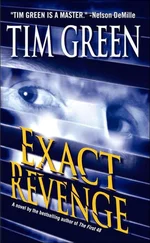“How’d it go?” She repeated his question, reaching for a cigarette and feeling Olympian, impervious, unscathed, La Dershowitz ascendant. She took a minute with the response, Saxby hanging there in the doorway, the late shafts of the sun gilding the curtains till they seemed solid as pillars. “Fine,” she said. “Just fine.”
* * *
On Sundays, Armand served dinner at seven and sometimes a bit later, depending on his whim and the mood of the colonists. Sunday was, after all, the day of rest, or so Septima reasoned, and long before she’d engaged her current chef she’d pushed back cocktails and dinner by an hour on the Lord’s Day, and it was now a Thanatopsis tradition. Sunday afternoons were long and languorous, and no one stirred before six, when the first sunburned and subdued clumps of artists began to gather on the patio or in the front parlor for cocktails. Sometimes there would be music—a poet would sit down at the piano or a biographer would reveal a hidden talent for the clarinet, ravishing the room with the adagio from Mozart’s concerto or a Gershwin medley—and the ice cubes would tumble into shaker or glass with a rhythmic click that was salvation itself for the sun-dazed and weary.
It was close to seven when Ruth came down for dinner. She’d scrubbed and showered and scrubbed again, ridding herself of any vestige of the sweaty film that had clung to her earlier that afternoon, clogging her pores and making her feel dirty and vulnerable while Abercorn hung over her with his unfinished face and chummy questions. She was wearing a white Guatemalan peasant blouse embroidered with bright blue flowers and matching full skirt, and she descended the steps and crossed the front hallway feeling light, airy, lustral, feeling unconquerable all over again.
When she entered the front parlor, Sandy was at the piano, stroking the petrosal keys as if they were flower petals, dripping his way through one syrupy Beatles tune after another. The melodies were perfect reconstructions of a thousand memories, syrupy or not, and with the help of their third or fourth cocktails, the colonists were in a mellow mood. Ruth stepped through the door and recognized them all, her friends and fellow artists, her community, her family, poised on sofas and ottomans, hovering over the bar, each and every one of them a joy and a solace.
Irving Thalamus was the first to call out her name, as usual—it was his way, chutzpah thrown up like a screen, the legend crowing—and then a murmur went through the room and they converged on her as if she’d just broken the tape in the marathon.
“You fox,” Thalamus said, shaking his legendary head, “you sly fox.” And then, turning to the others, “Can she keep a secret or what?” He was beaming at her, embracing her, squeezing her as if she were exotic fruit. “This,” he pronounced, “is a writer.”
Ruth hugged him back, giving them all a knowing but self-deprecatory grin, and reddening, if ever so slightly. Ina was staring at her in wonder. Bob’s eyes were glowing. Regina, in a chartreuse leather halter, looked up from a game of solitaire and one of the cigars she was now affecting, and Sandy broke off in the middle of “Fool on the Hill” to leap a barstool and pour Ruth a conspicuous martini—a whiff of vermouth and three olives, just the way she liked it. Clara and Patsy were there too, hovering at the edge of the press and looking like Tweedledee and Tweedledum in matching pantsuits.
“Hey, La D.: you’re just in time,” Sandy hollered, elbowing his way toward her with the drink held high, “—we just sent out for sushi.”
And oh, they laughed at that, her fellow colonists, mellow and proud, an excess of moisture in their eyes, warming up for the evening, the week, the month to come, with its string of Japanese jokes, its cops and robbers routines, and the audacious, awe-inspiring theme that would underlie it all: What La Dershowitz won’t do for a story, huh? And all the while the delectable questions—how long, how much, had she slept with him and what did the sheriff say?—hung in the air, awaiting fulfillment.
During the soup course, Ruth managed tête-à-têtes with Irving, Sandy, a myopic poet in a strapless gown with whom she’d never before exchanged a word, and a vacuous, wide-eyed Ina Soderbord. Over salad, Clara and Patsy pressed her for details, and while she tore into the main course—she found that she was ravenous after all the day’s excitement—Septima herself wanted clarification of some of the statements she’d made earlier. It wasn’t a dinner—it was musical chairs. By the time Rico brought out dessert and the big gleaming coffee urn, Ruth was the center of a group that wheeled out from her like planetary bodies, circling, tangential, held fast by the irresistible force of gossip.
After-dinner drinks were served on the patio.
Ruth was chatting with Bob and Sandy, enjoying the relative cool of the evening, feeling reborn, when she felt a hand slip into her own and looked up into the depthless haunted eyes of Laura Grobian. At fifty, Laura Grobian was the doyenne of the dark-eyed semi-mysterious upper-middle-class former-bohemian school of WASP novelists, famous for a bloodless 209-page trilogy set in 1967 San Francisco. She’d published a few slim volumes since (each phrase chiseled like sculpture—or dental plaster, depending on your point of view) and she’d been photographed by Karsh, Avedon and Leibowitz, her sunken cheeks, black bangs and haunted eyes as fixed an image in the public consciousness as Truman Capote’s hat or Hemingway’s beard. She dismissed Bob and Sandy with a neurasthenic bob of her head and drew Ruth aside.
“Oh, Ruth,” she gasped, fanning herself while bats careened overhead and mosquitoes hovered, “I heard, I heard all about it. How terrified you must have been—”
Ruth gazed on her with wonder. If Irving Thalamus was a legend in his own time, Laura Grobian was supernal, divine, and here she stood in the flesh, not merely acknowledging Ruth’s existence, but seeking her out, conferring with her, pumping her! Ruth leaned toward her and dropped her voice to a stagey whisper: “I’ve never been so afraid in my life, Laura.” She paused a beat to see how the haunted-eyed Laura Grobian was taking this little familiarity, and then went on. “Well, the sheriff—he was the worst. He’s got those Southern manners, yes, but when he gets you in that room and starts grilling you, let me tell you he’s the most powerful and intimidating man I’ve ever been this close to in my life. You know what he does?”
Laura Grobian’s spectral eyes were canny and fixed. She was all ears.
It was at this moment that a vaguely familiar automotive cough and rumble insinuated itself between the buzz of conversation and the shrilling of the insects, and the colonists looked up briefly from their Grand Marnier and Rémy-Martin to the fleeting wash of a pair of headlights. A gleam of silver flitted beneath the lights of the drive, there was the rise and fall of the car’s engine shutting down and the elegant thump of first one door and then the other closing on perfection: Jane Shine was back.
Ruth could feel them, the whole group, the whole colony, abuzz as they were with excitement over her exploits, her daring, her immaculate bedeviling of the powers that be, hesitate in the breach of that moment. The chatter died round her and her heart sank. But then Laura Grobian’s ruined but exquisite tones floated out to fill the vacuum—“But tell me, Ruth, honestly: you were hiding that desperate man all along, weren’t you?”—and it was over. As one, the colony turned back to the conversation, to the drink at hand and the company present. Jane Shine was back. So what else was new?
Читать дальше











